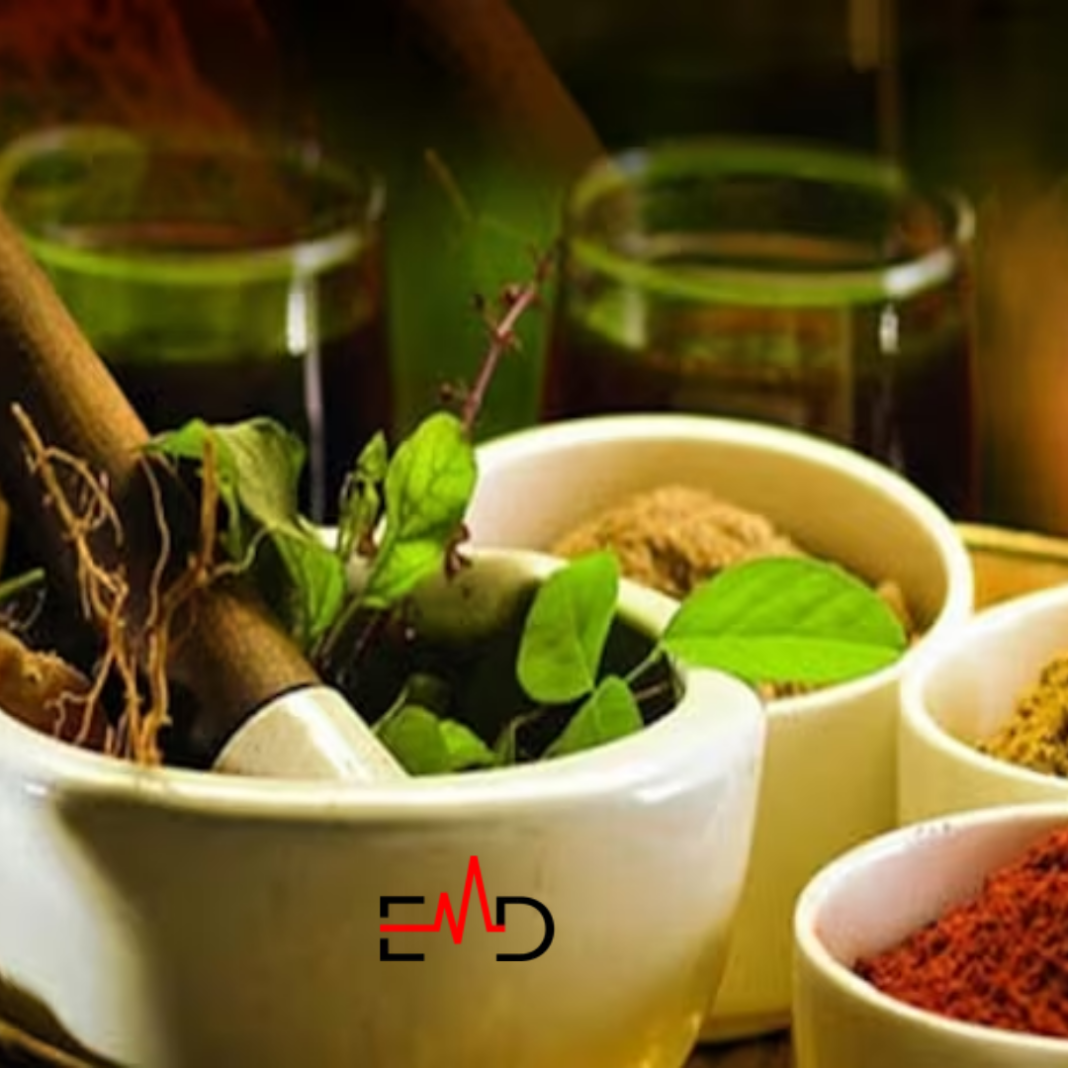Exercise Daily – Herbs and spices are flavor enhancers in our foods and offer various health benefits. From ancient times, people have used herbs and spices to treat various health conditions, and now modern science is validating their medicinal properties. In this article, we will explore the healing power of herbs and spices, their role in traditional medicine, and how they can help improve our overall health and well-being.
Herbs and spices have been revered for centuries and are celebrated for their diverse flavors and potent medicinal properties. From Ayurveda in India to Traditional Chinese Medicine, these natural elements have been utilized to promote health and vitality.
History of Herbal Medicine
Delving into the annals of history, herbal medicine emerges as one of humanity’s oldest healing practices. Ancient civilizations like the Egyptians and Greeks recognized the therapeutic benefits of herbs, using them in concoctions and poultices to heal various ailments.
1. Origins and Historical Use
The roots of using herbs and spices date back to ancient civilizations such as Egypt, China, and India. They were treasured for their healing benefits and regarded as sacred in some cultures.
2. Cultural Influence and Traditions
Across cultures, herbs and spices hold significance in rituals, traditional medicine, and culinary practices. Their usage varies, but the underlying belief in their healing powers remains consistent.
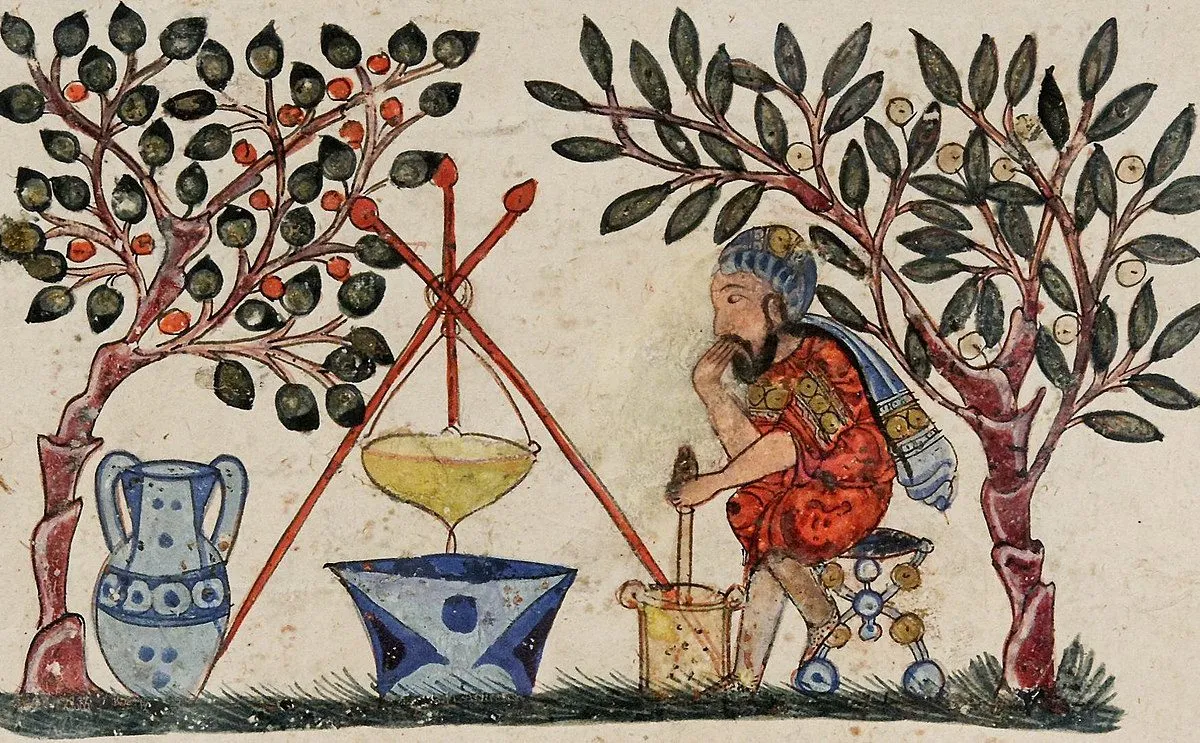
Types of Healing Herbs and Spices
Herbs and spices are nature’s treasure trove, offering healing properties contribute to overall well-being. Here, we’ll explore some remarkable herbs and spices known for their therapeutic benefits:
1. Turmeric
Anti-inflammatory Wonder
Turmeric, hailed for its vibrant color and earthy flavor, contains curcumin, a potent anti-inflammatory and antioxidant compound. It aids in reducing inflammation, easing joint pain, and promoting overall immune health.
2. Ginger
Digestive Support and Immunity Booster
Ginger, renowned for its zesty flavor, supports digestion by alleviating nausea, reducing bloating, and aiding in soothing an upset stomach. Its immune-boosting properties make it a go-to remedy for combating colds and flu.
3. Cinnamon
Blood Sugar Regulation and Heart Health
This sweet and aromatic spice is rich in antioxidants and has been linked to regulating blood sugar levels. Additionally, cinnamon may aid in reducing cholesterol levels and supporting heart health.
4. Garlic
Antibacterial and Cardiovascular Benefits
Garlic, known for its intense aroma, possesses potent antibacterial properties and has been linked to lowering blood pressure, reducing the risk of heart disease, and boosting the immune system.
5. Basil
Stress Relief and Anti-inflammatory Agent
With its sweet yet peppery taste, Basil contains essential oils that offer stress-relief properties. It also exhibits anti-inflammatory effects, contributing to overall wellness.
6. Chamomile
Calming and Sleep Aid
Chamomile, known for its delicate floral flavor, is widely used for its calming effects. It helps alleviate stress and anxiety and promotes relaxation, making it a popular choice for promoting better sleep.
7. Peppermint
Digestive Aid and Mental Clarity
Peppermint, with its refreshing menthol flavor, aids digestion by relieving bloating and easing stomach discomfort. It also enhances mental clarity and focus.
8. Cumin
Digestive Health and Immunity Booster
Cumin, with its warm and earthy taste, aids digestion, reduces gas, and stimulates the immune system. It also contains antioxidants that promote overall health.
9. Cloves
Oral Health and Pain Relief
With their intense and spicy flavor, cloves contain compounds with antibacterial properties beneficial for oral health. They’re also used for pain relief, especially toothaches and sore throats.
10. Rosemary
Cognitive Function and Antioxidant Powerhouse
Rosemary, with its pine-like aroma, supports cognitive function and memory. It’s packed with antioxidants that combat oxidative stress and promote overall health.
11. Saffron
Mood Booster and antioxidant-rich
With its distinct flavor and golden hue, Saffron acts as a mood booster, reducing symptoms of mild to moderate depression. It’s also rich in antioxidants that promote well-being.
12. Lavender
Stress Reduction and Sleep Aid
Lavender, known for its floral fragrance, possesses calming properties that aid in stress reduction and promote better sleep, making it a popular ingredient in aromatherapy.
13. Thyme
Respiratory Health and Antimicrobial Agent
With its earthy flavor, Thyme supports respiratory health, helps relieve coughs, and exhibits antimicrobial properties, aiding in fighting infections.
14. Oregano
Antioxidant-Rich and Immune Support
With its robust flavor, Oregano is rich in antioxidants and exhibits antibacterial properties that support immune health and overall well-being.
15. Mint
Digestive Aid and Refreshing Flavor
Mint, with its cooling sensation, aids digestion, soothes upset stomachs, and provides a refreshing taste in various culinary dishes and beverages.
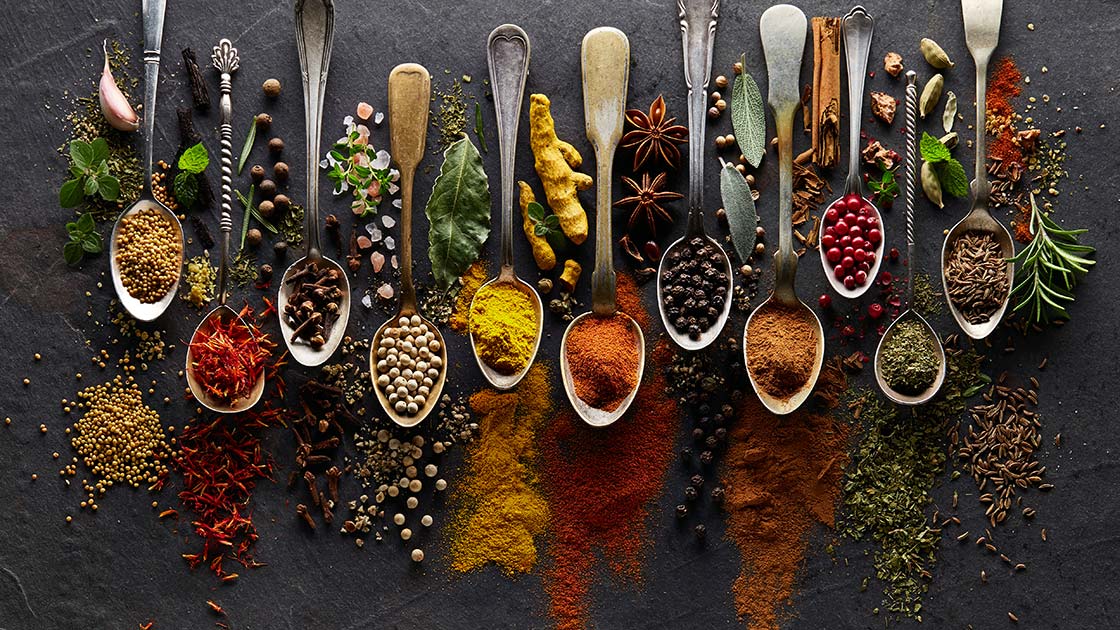
Benefits of Herbs and Spices
Herbs and spices aren’t just flavor enhancers but powerhouses of health benefits. Let’s delve into the remarkable advantages they offer for our well-being:
1. Boosting Immunity and Fighting Inflammation
Turmeric – Anti-inflammatory Wonder
Turmeric contains curcumin, a potent compound with anti-inflammatory properties that aid in reducing inflammation and strengthening the immune system.
Ginger – Immunity Booster
Ginger’s immune-boosting properties help prevent infections and enhance overall immune health as a natural shield against illnesses.
2. Aiding Digestion and Gut Health
Peppermint – Digestive Support
Peppermint aids digestion, relieves bloating, and soothes stomach discomfort, promoting a healthy gut and digestive system.
Cumin – Digestive Health
Cumin stimulates digestion, reduces gas, and supports gastrointestinal health, promoting better digestion and nutrient absorption.
3. Managing Stress and Anxiety
Chamomile – Stress Relief
Chamomile’s calming effects help reduce stress and anxiety and promote relaxation, making it an excellent natural remedy for easing tension.
Lavender – Stress Reduction and Sleep Aid
Lavender’s soothing properties aid in stress reduction and promote better sleep, contributing to overall mental well-being.
4. Promoting Heart Health
Cinnamon – Heart Health
Cinnamon has been associated with supporting heart health by regulating blood sugar and cholesterol levels and reducing the risk of heart diseases.
Garlic – Cardiovascular Benefits
Garlic’s cardiovascular benefits include lowering blood pressure and reducing the risk of heart disease, contributing to overall heart health.
5. Antioxidant Power and Disease Prevention
Rosemary – Antioxidant Rich
Rosemary is packed with antioxidants that combat oxidative stress, reducing the risk of chronic diseases and supporting overall health.
Oregano – Immune Support
Oregano’s antioxidant-rich nature and antibacterial properties bolster the immune system, aiding in fighting off infections.
6. Overall Wellness and Longevity
Basil – Anti-inflammatory Agent
Basil’s anti-inflammatory properties contribute to overall wellness by reducing inflammation.
Saffron – Antioxidant and Mood Enhancer
Saffron’s antioxidants promote general well-being while acting as a mood booster, aiding overall mental health.
7. Oral Health and Pain Relief
Cloves – Oral Health
Cloves possess antibacterial properties beneficial for oral health and are used for pain relief, especially for toothaches.
Mint – Refreshing and Digestive Aid
Mint aids digestion, soothes upset stomachs, and refreshes the breath, contributing to oral health.
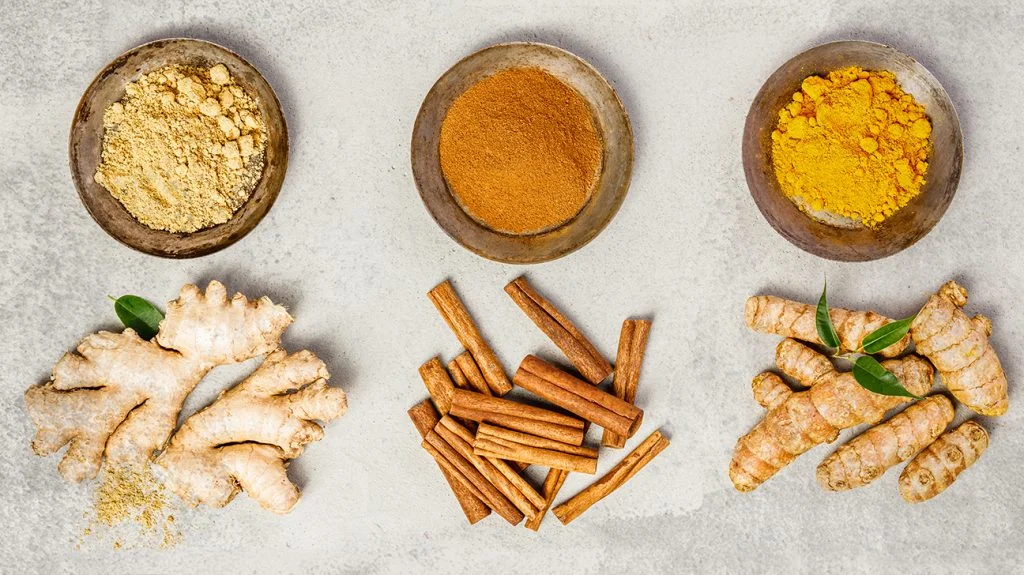
Precautions and Considerations
While herbs and spices offer numerous health benefits, it’s essential to exercise caution and be aware of certain precautions and considerations:
1. Possible Side Effects and Interactions
Allergic Reactions
Some individuals may be allergic to certain herbs or spices, leading to allergic reactions such as skin rashes, itching, or respiratory issues. Always start with small amounts if you’re trying a new herb or spice.
Medication Interactions
Certain herbs and spices may interact with medications, affecting their effectiveness or causing adverse reactions. Consult a healthcare professional, especially if you’re on medications for chronic conditions.
2. Dosage and Moderation
Herbal Remedies and Dosage
When using herbs for medicinal purposes, ensure you follow recommended dosages. Excessive consumption may lead to unwanted side effects or toxicity.
Pregnancy and Breastfeeding
Pregnant or breastfeeding individuals should exercise caution with herbs and spices as some may not be safe during these times. Always consult a healthcare provider before use.
3. Consulting with Healthcare Professionals
Health Conditions
Individuals with specific health conditions such as diabetes, hypertension, or liver problems should consult healthcare professionals before incorporating new herbs or spices into their routine.
Children and Elderly
Children and the elderly should consult healthcare providers before using herbs or spices, as their bodies may react differently or have different dosage requirements.
4. Quality and Source of Herbs and Spices
Quality Control
Ensure you source herbs and spices from reputable suppliers to guarantee their quality and purity. Low-quality products might be contaminated or diluted, compromising their effectiveness.
Organic and Ethical Sourcing
Opt for organic and ethically sourced herbs and spices whenever possible to support sustainable practices and avoid pesticide exposure or harmful chemicals.
5. Storage and Handling
Proper Storage
Store herbs and spices in airtight containers away from light, heat, and moisture to maintain their potency and flavor. Improper storage can lead to degradation of their beneficial properties.
Handling Fresh Herbs
When using fresh herbs, ensure proper washing and handling to eliminate contaminants and ensure food safety.
Sustainable and Ethical Practices
Ensuring sustainability and ethical sourcing of herbs and spices is vital for environmental conservation and supporting local communities. Here’s how to promote these practices:
1. Sourcing Responsibly
Support Local Producers
Choose locally sourced herbs and spices whenever feasible. Supporting local farmers reduces carbon footprints and fosters community growth and economic stability.
Organic and Sustainable Options
Opt for organic and sustainably harvested herbs and spices. These choices promote biodiversity, avoid harmful chemicals, and preserve ecosystems.
2. Fair Trade and Ethical Practices
Fair Trade Certification
Look for fair trade-certified products. These certifications ensure fair wages, ethical working conditions, and support for small-scale farmers and workers.
Transparency in Sourcing
Choose brands or suppliers that prioritize transparency in their sourcing practices. Understanding the origin and cultivation methods ensures ethical practices.
3. Conservation and Biodiversity
Conservation Efforts
Support brands or initiatives that contribute to conservation efforts. Preserving biodiversity and protecting endangered species are crucial in sustainable practices.
Cultivation and Harvesting Practices
Opt for herbs and spices harvested using eco-friendly methods. Practices like regenerative agriculture or agroforestry promote soil health and reduce environmental impact.
4. Reducing Waste and Packaging
Minimal Packaging
Choose products with minimal and eco-friendly packaging. Reduce waste by selecting options with biodegradable or recyclable packaging materials.
Bulk Buying
Consider buying bulk to reduce packaging waste and support suppliers offering refillable or bulk options.
5. Community Support and Education
Educational Initiatives
Engage in or support educational initiatives that raise awareness about sustainable herb and spice cultivation practices, fostering a more conscious consumer base.
Community Engagement
Participate in community-supported agriculture (CSA) or farmers’ markets to support local growers directly and learn about their cultivation methods.
6. Advocacy and Consumer Influence
Advocate for Change
Advocate for policies promoting sustainable and ethical practices in the herb and spice industry. Consumer demand drives change, influencing industry standards.
Share Knowledge
Share information and encourage others to make informed choices. By spreading awareness, consumers collectively impact sustainable practices positively.
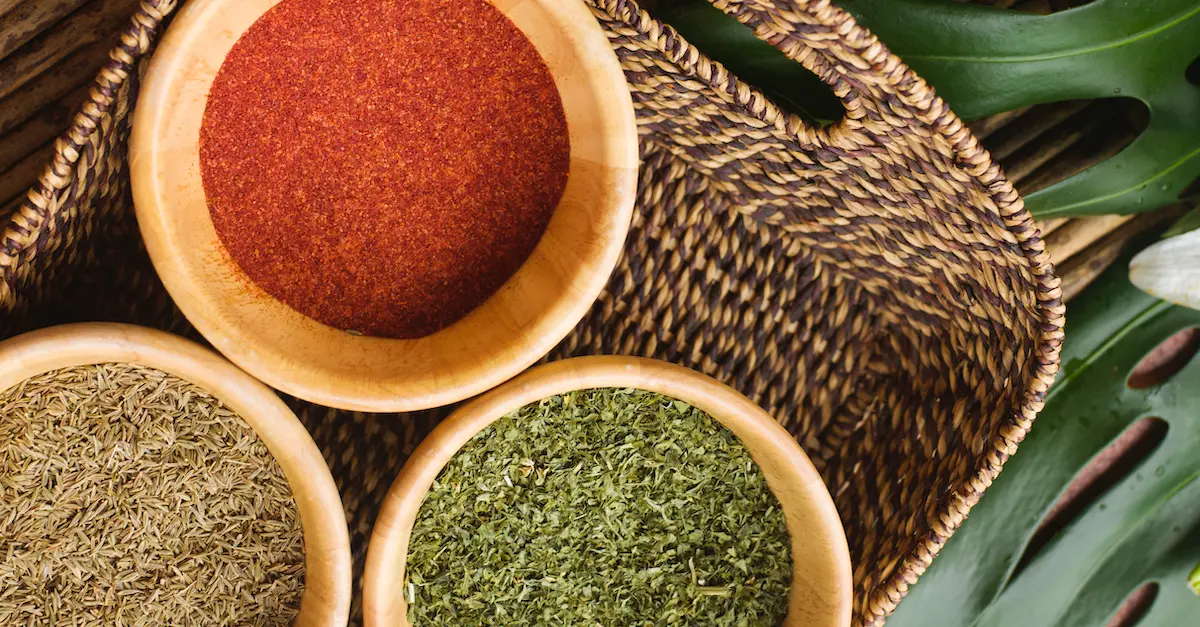
Conclusion
The healing power of herbs and spices transcends their culinary charm, offering a holistic approach to well-being. Integrating these natural remedies into our lives can pave the way for enhanced health and vitality. The healing potential of herbs and spices is vast, offering a natural and holistic approach to well-being. Integrating them into our lives through culinary endeavors or traditional remedies allows us to harness their incredible benefits.
FAQs – Healing Power of Herbs and Spices
1. Can I use herbs and spices if I’m on medication?
Always consult your healthcare provider before incorporating new herbs and spices, as they may interact with certain medications.
2. Are there any side effects of consuming herbs and spices?
While generally safe, some people might experience allergies or digestive issues with certain herbs and spices. Moderation and awareness are key.
3. Can I grow my herbs and spices at home?
Absolutely! Growing herbs and spices at home can be rewarding and ensure a fresh supply for your culinary and health needs.
4. How can I store herbs and spices properly?
Store them in airtight containers away from direct sunlight and moisture to preserve their potency and flavor.
5. What’s the best way to incorporate herbs and spices into my diet?
Experiment with different recipes, teas, and infusions to find enjoyable ways to include these natural healers in your daily routine.


